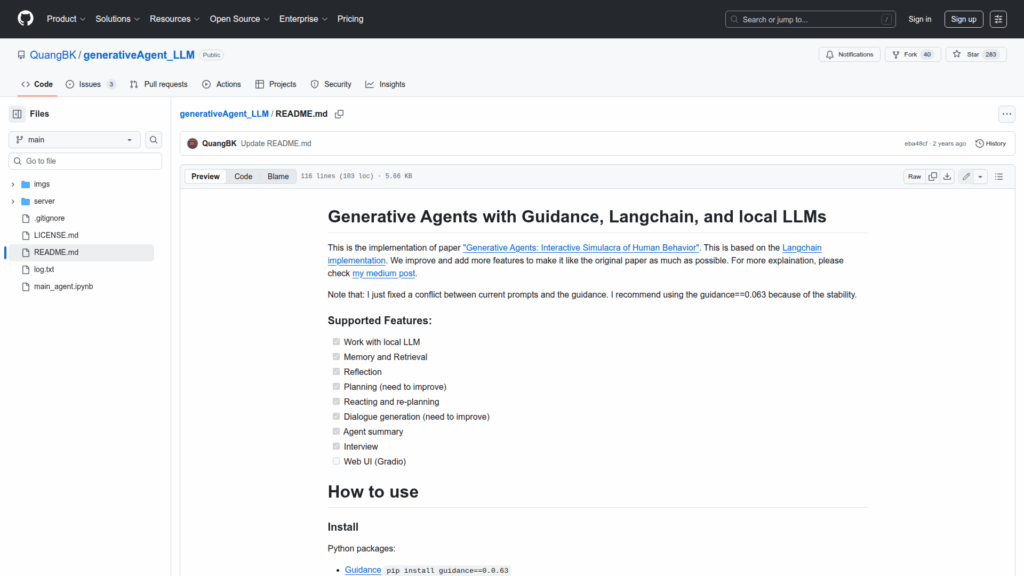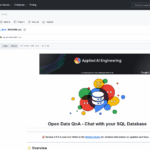generativeAgent_LLM
Basic Information
This repository implements the Generative Agents research paper using Guidance, Langchain, and local LLMs. It provides a reproducible implementation and an example notebook that recreate agent behaviors described in the paper, adapted from a LangChain example and extended to match original features where possible. The code targets local quantized models via GPTQ-for-LLaMa and uses a vector store implementation such as Faiss for memory and retrieval. The README documents installation notes including Guidance pinned to 0.0.63 and LangChain 0.0.190, a recommended model used in experiments, and example usage that constructs a GenerativeAgent, adds memories, obtains summaries, updates planning status, elicits reactions, and generates dialogues and interviews. The project is distributed under a Creative Commons Attribution-NonCommercial license.








